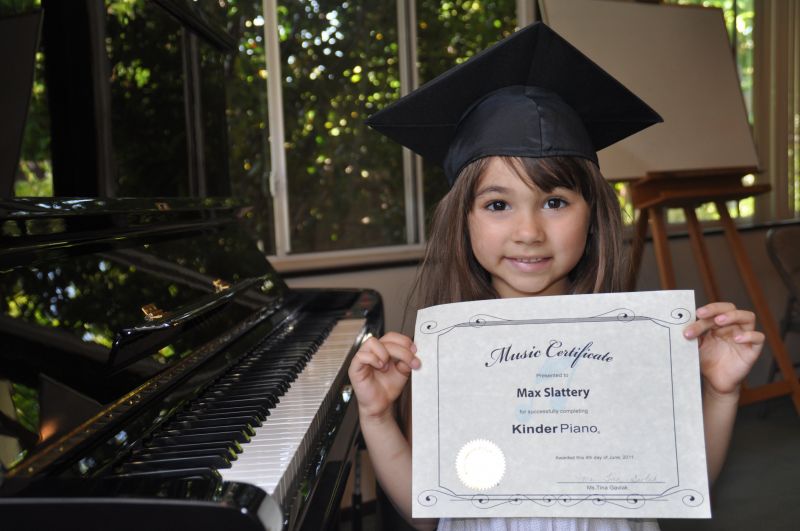Building a Successful Music Lesson Program: Step 1—Start Kids Early
Fortunately for music retailers, parents are more eager than ever to start their children in music lessons at an early age. They understand the value of early musical training—from neurological benefits to higher grades and better self-esteem.
How young can children begin music lessons? I believe there’s a magic age, 3 1/2, assuming the instrument is piano. But age isn’t the only criteria for lesson readiness. I also ask parents if their child can master a shape sorter toy and stay on task for at least 15–20 minutes. If so, their child will most likely benefit from a class.
Piano can be the gateway to your store’s music lesson programs. Based on my years of experience, here are my tips for getting started.
Get a large classroom. You’ll need a room that’s large enough for five to eight keyboards, with two chairs at each—one for the parent and one for the child, seated side by side. Arrange the keyboards in a semi-circle. There should be a whiteboard and a keyboard or piano at the front for the teacher.
Group children by age. Host a class for preschoolers, ages 3 1/2–4 1/2, and another for kindergartners through first graders.
Offer six classes. Six 50-minute classes, once a week, is the perfect length. Parents are sometimes hesitant to enroll their kids in a real piano class, so I let them know the class was designed as an introduction to instrumental music. That way, we can determine if the child is ready to journey into music or needs some time to mature.
Schedule the best time. Saturday mornings are usually the best time for families to schedule a class.
Provide the right books. We use the Mozart Mouse beginning books, published by Alfred Music. Preschoolers learn basic skills, including listening, rhythm, form and note reading. You can also use equivalent books to introduce preschoolers to piano.
Teach good lesson practices. The class should also teach good practice habits through positive reinforcement, including plenty of stickers and prizes!
Hold graduation recitals. The last class is a recital and graduation. Each child performs a solo and receives a diploma and plenty of praise and applause. Be sure to include refreshments for the happy occasion. Graduation recitals can inspire children and parents to continue with lessons.
Follow up with parents and students. After graduation, children can continue with their classmates in a second- or third-level piano class, or they can begin private instruction.
The early piano classes often become the gateway to our strings program. Children who have taken piano are eligible to start on strings at age 4 1/2. At the final piano class recital, we have our youngest string quartet perform. This inspires many families to continue in piano until their children are old enough to start strings.
Because families are required to have a keyboard or piano at home, we’ve expanded our business by offering affordable rental and rent-to-buy programs. Our business has also benefitted from piano sales; a piano tuning service; and sales of metronomes, practice organizers and instruction books.
Susan Pascale is founder and director of the nationally acclaimed Pascale Music Institute. Her two books, The Pascale Method for Beginning Violin and Practicing is for the Birds: The Ultimate Practice Organizer With Reward Stickers, are published by Alfred Music. Her children’s orchestras have been featured in national publications and on television. To see and hear her students in action, go to pascalemusicinstitute.com.

Join Us in Person for The NAMM Show
With a focus on innovation, the education offerings at The NAMM Show will help to prepare your business for the year to come.

Discover the Benefits of a NAMM Membership
Power our industry’s advocacy efforts by joining the NAMM community, featuring show access, education, discounts, networking, the Global Report and more!
